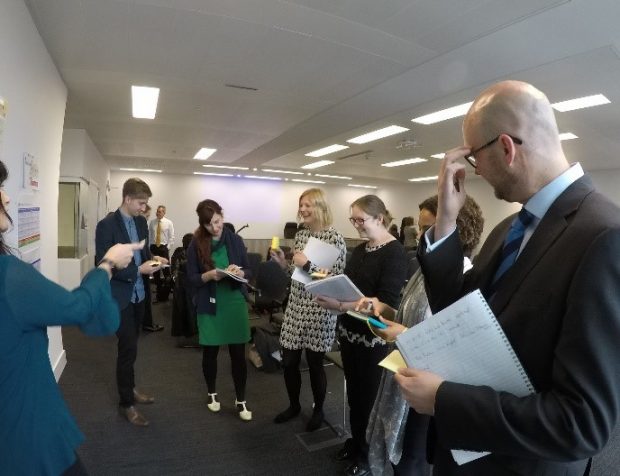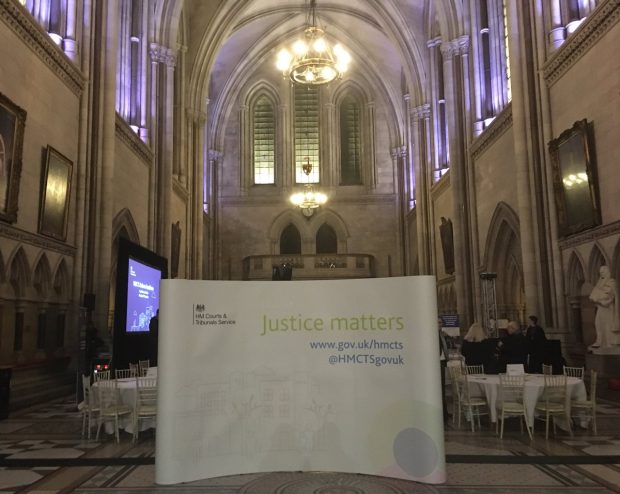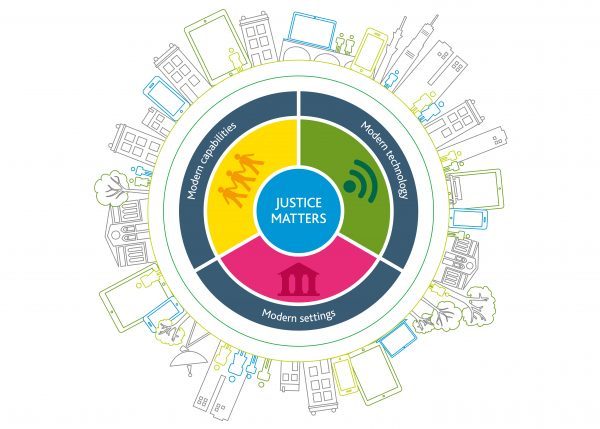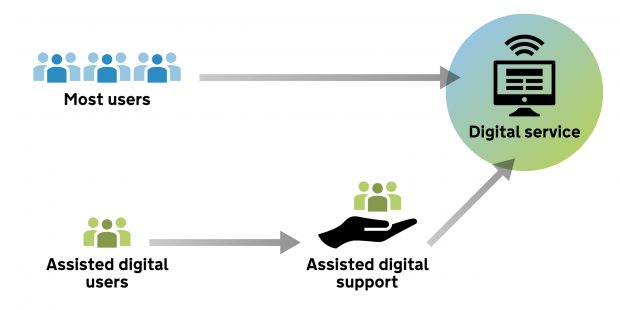Court and tribunal reform
Susan Acland-Hood explains that one important part of our overall reform programme to build a more modern, accessible and efficient justice system, is to enable our courts to make greater use of video technology. Susan details that with increasing sophistication in the technology available, we believe it can play an even greater role in the …
Emma Petty, Service Manager for the Public Law project provides an update on the project, its aims, and how it will be delivered. Our Public Law project sits in the family jurisdiction and forms part of the wider HMCTS £1bn reform programme. In October 2017, we set out our intention to reform the service around …
Susan Acland-Hood talks about our first three legal professional roadshows and how they were full of ideas, commitment and challenge that discussed the overall reform programme with a particular focus on scheduling and listing practice, flexible operating hours and virtual hearings.
A blog post from Linda Green on the Identity and Access Management service, the functionality within the Common Platform that allows different users to have an identity on the system and ability to sign in and access the various services. It also provides a service for administrators to create, update, manage and remove organisations and …
A blog post from Susan Acland-Hood in which she talks about what is planned on courts and tribunals reform over the next 18 months. This includes taking the things we’ve begun to develop so far and building them out further.
Susan Acland-Hood confirms that today, we are publishing the invitation to tender for an independent organisation to provide an effective assessment of the pilots along with a supporting prospectus, which sets out the rationale for testing flexible court operating hours, and invites views on the detail of how the pilots can best be carried out.
A blog post from Mike Brazier who work in HMCTS’s Accessibility and Inclusion Team. Mike talks about how his team is responsible for ensuring we help and support people who are not online make sure that they can also experience the benefits of using our online services.
The second in a series of blog posts from Susan Acland-Hood. The first one set out why reform is needed and why we need to do more to engage and talk more widely about what we’re doing. In this blog post Susan talks a bit more about the approach we are taking to reform, and …
A blog from Susan Acland-Hood on our plans to re-tender for an independent organisation to lead the evaluation work for the flexible operating hours pilot. At the same time, we’ll make more information available and spend more time with legal professionals in each jurisdiction, including those outside the pilot areas, to refine our plans. This …
Susan Acland-Hood reflects on what she has learnt since she started as CEO of HMCTS last November. Susan explains her plans to write a set of blog posts that outline what we need to do, what we’ve done so far, what our plans are, and how to get involved in shaping HMCTS’s reforms for the …






